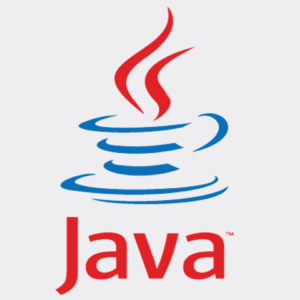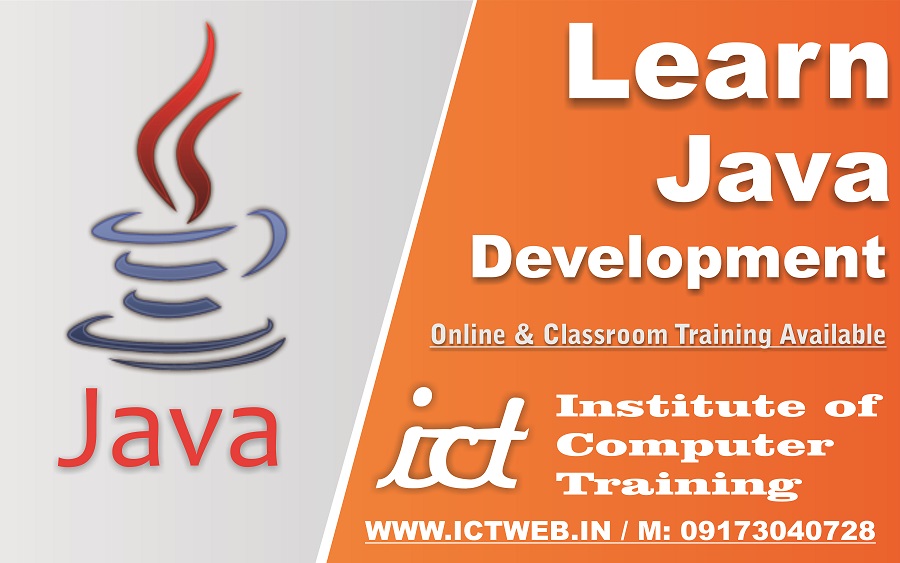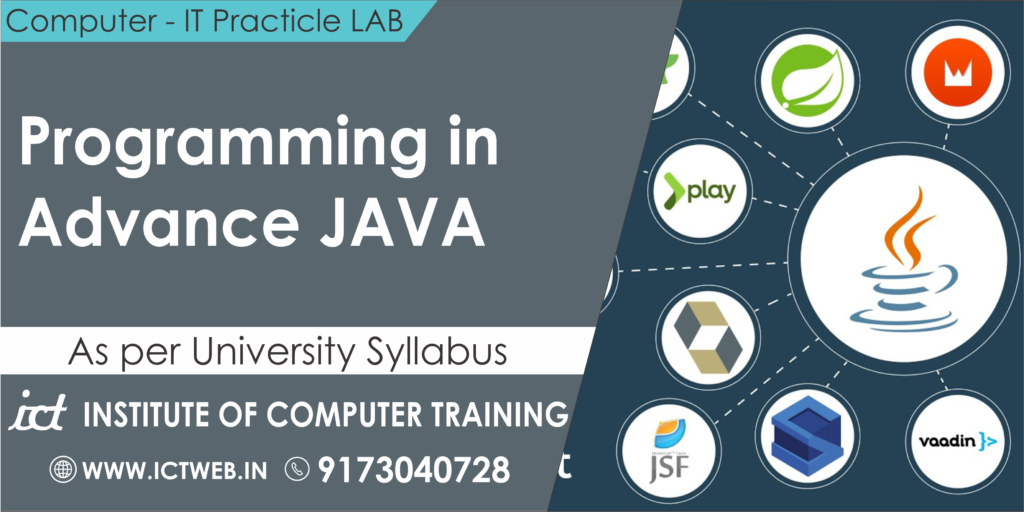ICT gives Java Project Training in Ahmedabad which Course Includes, Core Java, Advanced Java, Servlet, Hibernate, JSP, Spring Framework, Spring Boot or as per custom Java framework course syllabus. ICT Ahmedabad provide specialized in Java Project Training with techniques which necessary for a Web Development as well as Software Development career.
Core Java
Advanced Java
Swing
GUI
JDBC
HTML
Servlet
Java Server Pages – JSP
JSTL
Spring
Spring Boot
JAVA FRAMEWORK TRAINING
Java is a general-purpose computer-programming language that is concurrent, class-based, object-oriented, and specifically designed to have as few implementation dependencies as possible. It is intended to let application developers “write once, run anywhere” (WORA), meaning that compiled Java code can run on all platforms that support Java without the need for recompilation.
Java applications are typically compiled to “bytecode” that can run on any Java virtual machine (JVM) regardless of the underlying computer architecture. The language derives much of its original features from SmallTalk, with a syntax similar to C and C++, but it has fewer low-level facilities than either of them.
As of 2016, Java was one of the most popular programming languages in use, particularly for client-server web applications, with a reported 9 million developers.
Java is still a relevant programming language that shows no sign of declining in popularity and, for that reason, is worth learning. Most developers pick it up as their first programming language because it’s reasonably easy to learn.
- Building Android apps
Although there are other ways to make Android apps, most of the applications are written in Java using Google’s Android API. Although Android uses difference JVM and packaging methods, the code is still predominantly Java.
- Java web applications
Many government, healthcare, insurance, education, and defence departments have their web applications built in Java. A significant example of this is Google’s Gmail.
- Software tools
Many useful software and development tools are written and developed in Java, e.g. Eclipse, IntelliJ IDEA and NetBeans IDE.
- Scientific applications
Nowadays, Java is often the default choice for scientific applications, including natural language processing. The main reason for this is because it is safe, portable, maintainable and comes with better high-level concurrency tools than C++ or any other language.
Depending on your career prospects, Java can take you on different career paths. Whether you’re interested in building games, mobile applications, desktop applications, or web applications, Java is capable of working in these environments.
Regardless of whether or not you use Java in your career or job role, you’ll learn syntax, ideas, patterns, tools, styles, and idiosyncrasies that are readily transferable to other programming languages as well.
Learning Java will give you the opportunity to see how one language does something in comparison to another. Additionally, knowing what works for Java and other languages will make you an even better well-rounded developer.
Now, there are lots of programming languages out there to choose from, and I don’t believe in competition between them. All languages were created for a specific reason, and have evolved and contributed in some way to the technological advances of our times. Pitting them against each other usually ends up watering down the main reason the language was conceived.
That said, each language has its strong and weak points. In my opinion, a great language to have an understanding of is Java.
It can be summed up into one, simple sentence: Java is a mature language. This leads to:
1. Lots of information
2. An incredible tool-set
3. Software that leads by example
4. Killer editors
5. Omnipresence
6. Lots of available jobs
7. Android adoption
8. Ease of learning
More information about java Visit ICT.




